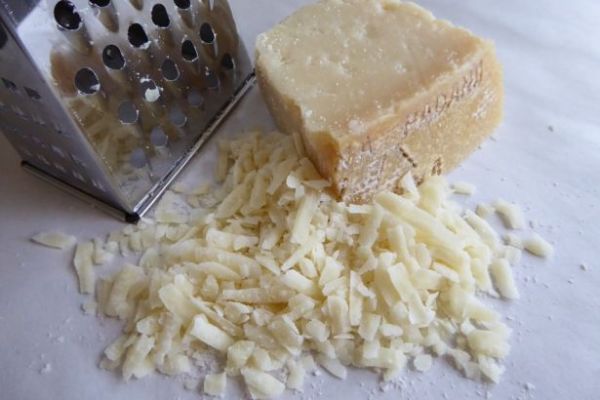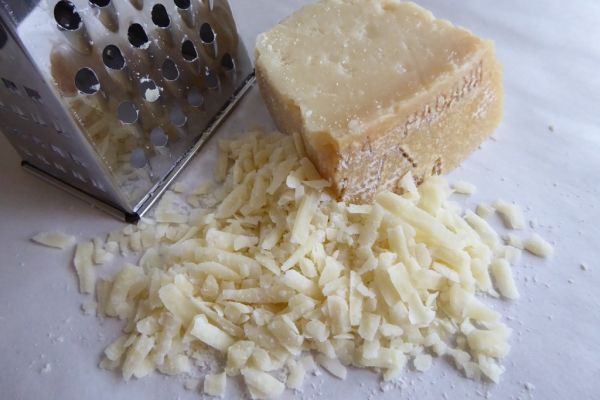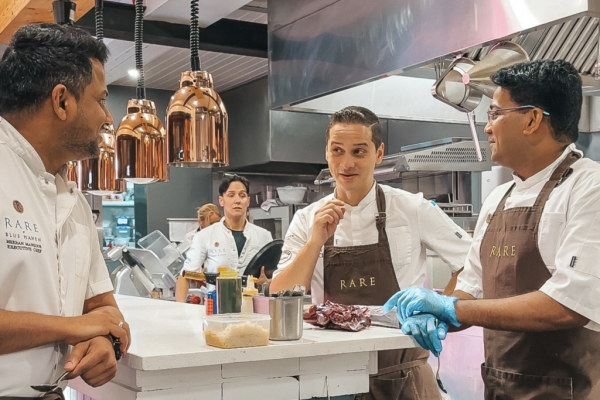You don’t have to forsake Stilton, manchego or camembert. But if you want to spice up your cheese plate or impress a host, we have a few suggestions to help you get creative.
Bloomberg asked top chefs from around the world to pick out their favorite under-the-radar cheeses. Here’s what they had to say.
Coupole
Country: U.S.Chef: Eric Ripert (Le Bernardin, New York)
Why: This American original with a distinctive, snow-covered dome shape is an aged goat cheese from Vermont Creamery. “It has a lot of flavor and a great creamy texture,” says Ripert, who was born in France. “It is full of personality. It is wonderful to see that America is producing cheese as delicious as those in Europe.” Best of all, it’s relatively easy to find at places like Whole Foods.
Claousou
Country: FranceChef: Shane Osborn (Arcane, Hong Kong)
Why: This unpasteurized ewe’s milk cheese from Cévennes comes wrapped in spruce bark. “It’s a bit like a brie, with a light, smoky taste,” says Osborn, who serves it on his cheese board. “When ripe, it is absolutely delicious, very special. People in Hong Kong generally don’t like really strong cheeses or blue cheeses, but Claousou is subtle and elegant and smooth.”
Manouri
Country: GreeceChef: Yotam Ottolenghi (Ottolenghi, London)
Why: This semi-soft, rindless cheese from the Greek regions of Thessaly and Macedonia is known for its gentle, milky flavor. “We use a lot in our restaurant,” Ottolenghi says. “It’s white and young, with cream added to it, which makes it sweeter and creamier than feta. It grills really well, so we tend to use it in salads, alongside grilled fruit or veg. Unlike halloumi, which is rather rubbery if not served warm, this one is crumbly, so can be eaten at room temperature as well.”
Bandel
Country: IndiaChef: Vivek Singh (Clove Club, London)
Why: This dry and salty cheese was originally brought to Bandel, in the east of India, by Portuguese settlers. “It’s a bit like feta,” Singh says. “It is great to crumble onto scrambled eggs. India isn’t really a cheese country, but this is special.”
Hooligan
Country: U.S.Chef: Daniel Humm (Eleven Madison Park, New York)
Why: This stinky, stinky cheese from Cato Corner Farm, in Colchester, Connecticut, flies under the radar. Humm, whose Eleven Madison Park holds the title of world’s best restaurant, says: “We’ve used it in the restaurant. It’s a washed rind, soft cheese that has beautiful aromas and intense flavor.” This one’s tough to find, but we tracked it down at Murray’s Cheese shops in New York.
Fourme d’Ambert
Country: FranceChef: Wolfgang Puck (Spago, Beverly Hills)
Why: This blue-veined French cheese, which dates back to the Middle Ages, is produced from the milk of cows that are fed on grass in the mountainous region of Puy de Dôme, in Auvergne. “I love Fourme d’Ambert,” Puck says. “It is a blue cheese but really creamy and easy to eat with wine and everything.”
Milleens
Country: IrelandChef: Pierre Koffmann (London)
Why: This soft farmhouse cheese is made from the milk of Friesian cows grazing on the mountains of the Beara peninsula of southwest Ireland. “It’s got a washed crust and it it is brilliant, with beautiful flavor,” says French-born Koffmann, who held three Michelin stars at La Tante Claire in London. He likes to eat it on its own.
Picodon
Country: FranceChef: Anne-Sophie Pic (Maison Pic, Valence)
Why: This goat’s milk cheese from the Rhône is a favorite of Pic, who holds three Michelin stars at Maison Pic in southeast France. She won the title of world’s Best Female Chef in 2011. “Picodon is from my region,” she says. “I grew up with this cheese.”
Old Winchester
Country: EnglandChef: Angela Hartnett (Murano, London)
Why: This a is a firm pasteurized cheese handmade at Lyburn Farm, in the New Forest, in the south of England. “It reminds me of a Comté and a Parmesan,” Hartnett says. “It’s a nice cheese you can have on its own or with bread and chutney, or you can slice it really thin. It’s got a brilliant salty, crystalline crunch to it.”
Paria
Country: PeruChef: Virgilio Martinez (Central, Lima)
Why: Queso Paria, which has a soft flavor, is made from cow’s milk in the mountains of Peru. “It is creamy and salty and then the skin, which is also edible, is quite hard,” says Martinez, whose Lima restaurant Central ranks No. 5 in the world. “I like the different textures.”
Puigpedrós
Country: SpainChef: Albert Adrià (Tickets, Barcelona)
Why: This Catalan cow’s milk cheese is a favorite of Adrià’s. “It is soft, with notes of hazelnut and confit fruit,” Adrià says. “It has a lot of personality from the fields where it is made.”
Article by Richard Vines, chief food critic at Bloomberg.









